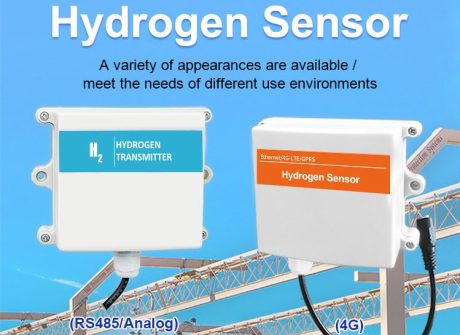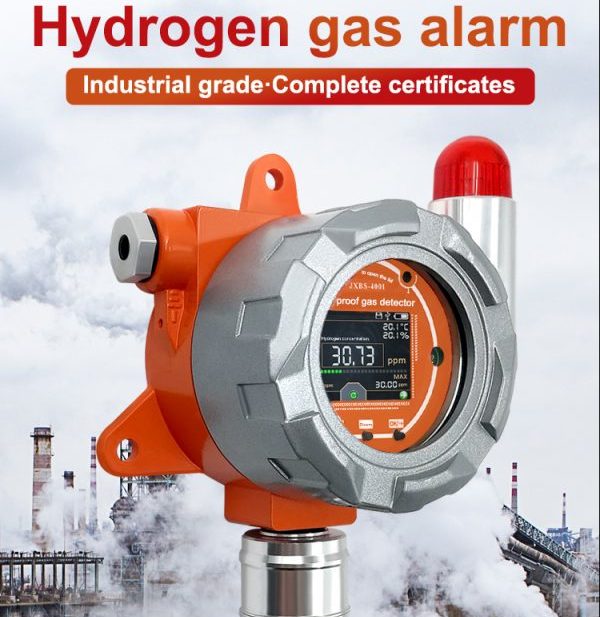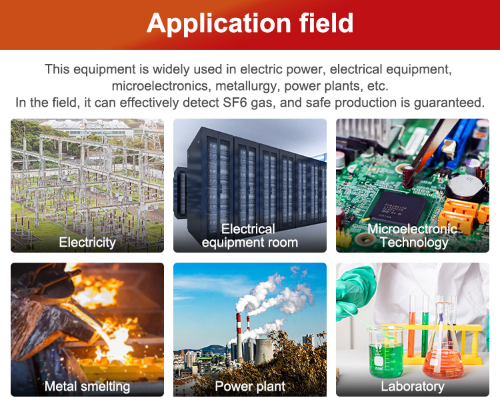Hydrogen is a highly versatile and promising energy carrier. A variety of sources produce hydrogen, and combustion emits only water vapor. However, hydrogen also poses unique safety challenges due to its flammability, invisibility, and difficulty in detection at low concentrations. To mitigate these risks and ensure the safe and efficient use of hydrogen, hydrogen detectors have become as a critical tool for monitoring.
Understanding Hydrogen Detector
Hydrogen detector refer to sensing devices that detect and measure the presence and concentration of hydrogen gas in the air. These detectors rely on different sensing technologies, such as electrochemical, infrared, catalytic bead, and metal oxide semiconductor (MOS), depending on the sensitivity, selectivity, response time.

Electrochemical sensors use an electrochemical cell that generates a current proportional to the hydrogen concentration in the air, based on the oxidation or reduction reactions of hydrogen ions at the electrodes . These sensors are compact, durable, and require minimal power, but may suffer from cross-sensitivity with other reducing gases.
Infrared sensors use the absorption of infrared radiation by hydrogen molecules at specific wavelengths, which depends on the rotational and vibrational modes of the molecule. These sensors are highly selective, fast, and stable, but may require frequent calibration.
Catalytic bead sensors use a platinum wire or bead that catalyzes the combustion of hydrogen in the presence of oxygen, generating heat and a change in resistance that is proportional to the hydrogen concentration. These sensors are robust, reliable, and insensitive to most interfering gases, but may require a high operating temperature and may degrade over time.
Semiconductor sensors use a thin film of metal oxide, such as tin oxide or zinc oxide, that changes its electrical conductivity in response to the adsorption and desorption of hydrogen molecules on its surface. These sensors are inexpensive, small, and sensitive to low hydrogen concentrations, but may require a heating element and may be affected by aging or poisoning by reducing gases.
Benefits of Hydrogen Detector
Hydrogen detector offer several benefits for ensuring the safety and sustainability of hydrogen systems, including:

Early warning and prevention of hydrogen leaks and fires: Hydrogen detectors can detect hydrogen leaks and emissions at very low concentrations, often below 1% by volume, which is well below the lower explosive limit (LEL) of hydrogen-air mixtures.
This can provide sufficient time for personnel to evacuate or take corrective actions before a potential ignition source triggers a fire or explosion.
Compliance with safety regulations and standards: Hydrogen detectors are mandatory in many jurisdictions and industries that handle or store hydrogen, such as chemical plants, refineries, laboratories, and fueling stations.
These regulations and standards, specify the installation, testing, and maintenance requirements for hydrogen detectors, to ensure their reliability
Monitoring and control of hydrogen emissions: Hydrogen detectors can help monitor and control the emissions of hydrogen from various sources. This can support the achievement of environmental targets, such as greenhouse gas reduction .
Quality control and process optimization: The hydrogen detector provides real-time data on hydrogen purity, flow and pressure for quality control. This can enhance the efficiency, productivity, and cost-effectiveness of hydrogen systems and reduce the risks of contamination.
Types of Hydrogen Detector
According to the sensing technology, form factor, output signal and the application of the hydrogen detector can be divided into several categories. Some common types of hydrogen detectors include:

Fixed hydrogen detector : Fixed hydrogen detector means that the detector is always used in the position where hydrogen leakage may occur. These detectors have robust housing, wired communication interfaces, local or remote displays.
Portable hydrogen detector : A portable hydrogen detector is a handheld or wearable device that is easy for personnel to carry for investigation. These detectors are usually battery powered, lightweight and easy to operate.

Online hydrogen analyzer : Online hydrogen analyzers are continuous monitoring systems that can measure the hydrogen concentration in a gas stream, such as a process vent, a fuel cell exhaust, or a pipeline. These analyzers typically use more sophisticated sensing technologies, such as Fourier transform infrared spectroscopy (FTIR) or mass spectrometry (MS), and may have higher accuracy, resolution, and range than point sensors.
Multi-gas detector : Multi-gas detectors are instruments that can detect multiple gases simultaneously, including hydrogen, along with other toxic or combustible gases, such as carbon monoxide, methane, or sulfur dioxide. These detectors are useful for applications where multiple hazards are present or where a single sensor may not provide sufficient coverage or reliability.
Applications of Hydrogen Detectors
Hydrogen gas detector in the environment of the use of hydrogen has a different application. Some common applications of hydrogen detectors include:

Industrial facilities: We use hydrogen detectors in industrial facilities that process or store hydrogen. These detectors can protect personnel, equipment, and infrastructure from hydrogen leaks, fires, or explosions, and can comply with safety regulations and standards.
Fuel cell vehicles: Hydrogen detectors are essential components of fuel cell vehicles, which use hydrogen as a fuel to generate electricity and emit only water vapor. These detectors can monitor the hydrogen levels in the fuel tank, the fuel cell stack, and the exhaust system, and can prevent overpressure, underpressure, or leakage that could compromise the performance, durability, or safety of the vehicle.
Renewable energy systems: Hydrogen detectors are increasingly used in renewable energy systems that produce or store hydrogen. These detectors can ensure the quality, efficiency, and reliability of hydrogen production and storage, and can contribute to the decarbonization of the energy sector.
Laboratories and research centers: We use hydrogen detectors in laboratories and research centers that develop hydrogen-related technologies. These detectors can safeguard the health and safety of researchers, technicians, and students, and can facilitate the accurate and reproducible measurement of hydrogen properties and behaviors.
Public spaces and buildings: In use or storage of hydrogen in public places and buildings need hydrogen detector . These detectors can enhance the public confidence and acceptance of hydrogen technologies, and can minimize the risks of accidents or incidents that could harm people or property.
Future Developments in Hydrogen Detectors
As hydrogen becomes more common as an energy carrier, hydrogen detectors are expected to develop and improve in several ways:
Integration with IoT: Hydrogen detectors are likely to become more connected and intelligent, using Internet of Things (IoT) and artificial intelligence (AI) technologies to transmit, analyze, and interpret hydrogen data in real-time. This will enable faster and more accurate detection of hydrogen leaks and emissions, better prediction of hydrogen behavior and performance.
Miniaturization and flexibility: Hydrogen detectors are likely to adopt smaller, lighter, and more flexible form factors, allowing for easier integration and deployment in various environments and applications. This will also facilitate the customization and personalization of hydrogen detectors, based on the specific needs and preferences of users.
Standardization and interoperability: Hydrogen detectors are likely to become more standardized and interoperable, using common protocols and interfaces, such as Modbus, OPC UA, or MQTT. This will promote collaboration and innovation among manufacturers, developers, and stakeholders, and enable the sharing and reuse of hydrogen data across different domains and platforms.
Environmental and social impact assessment: Hydrogen detectors are likely to play a greater role in assessing and mitigating the environmental and social impacts of hydrogen systems, such as land use, water consumption, noise pollution, or community engagement. This will require hydrogen detectors to integrate with other sensing and monitoring technologies, such as weather stations, noise meters, or social media analytics.
In conclusion, hydrogen detectors are essential tools for ensuring the safety and sustainability of hydrogen systems, by detecting and measuring the presence. By understanding the working principles, types, applications, and future developments of hydrogen detectors, we can better appreciate their potential impact on our society and environment. As hydrogen continues to gain momentum as a clean and versatile energy carrier, hydrogen detectors are play a pivotal role in shaping our energy transition.